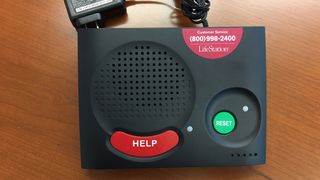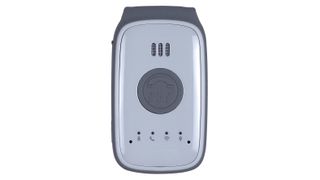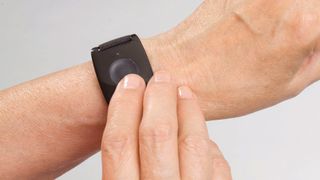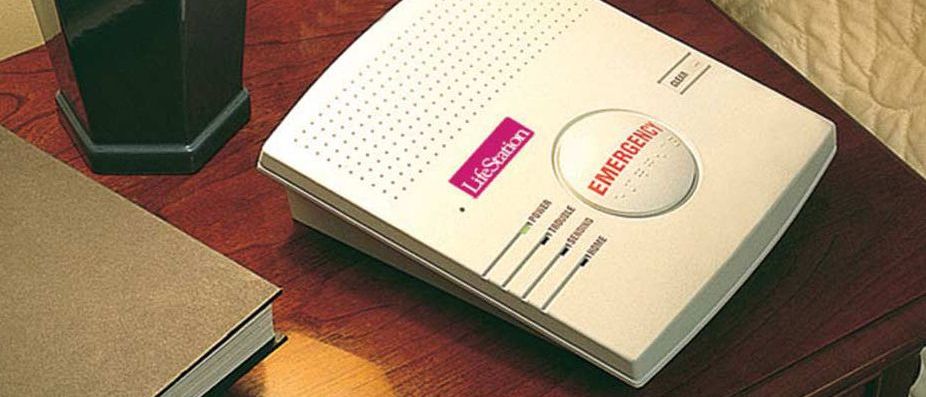This is our review of the Lifestation medical alert system. In the market for a medical alert system? We've got all the information you need to make an informed decision. Hours of research went into creating our guide to the best medical alert systems out there.
LifeStation: What you need to know
LifeStation prides itself on being a care specialist, with all of its monitoring center operatives required to undergo six weeks of intensive classroom training, and staff moving onto an apprenticeship scheme under the tutelage of a veteran specialist. All specialists are CSAA certified and the monitoring center is Underwriters Laboratories (UL) listed.
LifeStation has all of the main packages to cover you inside and outside of your home, although it provides just the standard alert features and you may want to go elsewhere if you need specific things, such as peace-of-mind features.
Packages: How much does LifeStation cost?
LifeStation is broadly split into two categories: in-home and mobile with GPS (out of home). Under each section, there are different product categories, delivering different features, which we’ll cover here. It’s worth pointing out that the website is a little light on package information, so you may need to call to get the latest details.
In Home

The Standard In Home package gives you a base station that connects to a landline telephone. It starts at $19.95 a month, and includes a single emergency button, which can be a wristband or necklace. The Select package ups the price by $5 a month but adds in the Protection Plan to increase cover for your devices. At the top, there’s the Supreme package, which costs $34.95 and gives you everything the other packages has, plus you get fall detection.
Pricing starts out at $37.95 a month if you pay monthly, although semi-annual subscribers get the system for $34.95 a month, and annual subscribers get the system for $32.04 a month. That’s not bad, although GreatCall has a cheaper mobile system.
Again, semi-annual subscribers get free shipping, and annual subscribers also get a Lockbox. Pay $10 a month ($9.17 for annual subscribers) and fall detection is included.
In Home No Landline
If you don’t have a landline, the In Home No Landline package gives you home protection but connects using cellular instead. This makes it a touch more expensive, although starting at $26.95 for the Standard package, the system is still well priced. This gets you a single button for help (wrist or necklace). Move up to Select ($31.95) and you get the Protection Plan to give you extra protection for your devices. At the top, there’s Supreme ($41.95), which gets you a Lockbox on top of the other plans and Fall Detection.
Mobile with GPS

If you want cover outside of your home, the Mobile with GPS device is the only bit of kit that you need. This wearable necklace has an integrated SIM and acts as a speakerphone in an emergency, so you can ask for help with this one device.
Prices start at $34.95 for standard, which also includes tracking, so that you can track a loved-one’s location. There’s even an Amazon Alexa Skill, so you can ask your smart speaker where your loved one is. This package is a bit more expensive than the competition, with GreatCall Lively Mobile costing a good deal less.
Move up to Select ($39.95 a month) and you get the Select package, which adds in the Protection Plan to boost your warranty cover on hardware. Finally, there’s the Supreme package ($44.95 a month), which gives you everything the other packages give you, plus Fall Detection.
Extras
In addition to the basic packages, you can buy some additional extras. Lock boxes are available for keeping your keys in so that emergency services don’t have to break into your home. These cost $2.99 a month for care packages where you don’t get a free one.
Spouse cover is reasonable on the In Home packages, available with additional buttons for just $3.99 a month. In Home is also compatible with the wall mount buttons, which cost $2.49 a month, and are handy to place in a home where an accident or fall is likely to happen, such as in a bathroom or hallway. There are no additional services, such as medicine reminders or check-in services with this company. There are also no bundled packages that combines in-home and on-the-go tracking.
If you go on vacation or holiday, you can take the system with you, just remember to let LifeStation know where you’re going so that help can be sent to the right place when needed.
LifeStation: Warranty and Cancellation
Free cancellation: Seven days
System price (starts at): $0
Monthly costs (starts at): $19.95
In-home monitoring: Yes
Outside monitoring: Yes
LifeStation doesn’t tie you up with long contracts and has a very simple 30-day notice period to cancel your service at any point, returning the hardware that you have leased from it. That’s similar terms as with much of the competition.
Devices come with a limited warranty, as they’re leased, protecting devices against manufacturer faults and also providing new batteries. However, accidental damage or lost equipment is chargeable - check your service plan for the full costs, but expect to pay somewhere around $300 for a base station. If you take a care package that has a Protection Plan built-in, then you’re also covered against accidental damage and lost equipment.
How does LifeStation deal with an alert?

An emergency event can be triggered through a button press or by the fall detection system going off. This connects the user to the LifeStation monitoring station, where they attempt to make contact to find out what the problem is.
In the event that there’s a need to dispatch emergency services, LifeStation follows the personalized emergency plan into action, which includes contacting emergency services, and letting any friends or family know of the situation and to attend if needed. In the event that a mobile device triggered the alarm, the kit reports a GPS location to aid emergency services.
LifeStation can provide access to a Lockbox for emergency services, or provide alternative methods of entering your home, such as getting a neighbor to come round. Help is also dispatched if you can’t respond to an emergency call.
LifeStation: What the users say
To understand how well LifeStation performs in the real world, we’ve used both our first-hand experience of the product, combined with the user reviews from trusted platforms. It’s important to note that users are more likely to leave bad reviews for individual bad experiences rather than good impressions, so you have to be careful with any advice you get from them.
From when we tested the system, we found that the monitoring staff were courteous and well trained. We also found that the system had decent range indoors, covering most moderate-sized properties, but Philips Lifeline and Medical Guardian did better.
Looking at the user reviews, LifeStation scored 4.1 on Google, 4.2 on Consumer Affairs and 4.3 on TrustPilot. They’re decent overall scores, showing that most people are happy with the service that they’ve had from this medical alert system.
Those that like the system a lot praised the speedy response and helpful staff at the monitoring center. Complaints are largely individual ones about the odd billing problem, but these are far overwhelmed by positive ratings.
LifeStation: Verdict
Well priced, with a quality monitoring center staffed by well-trained support, LifeStation scores highly. It has enough packages to cover most needs, too, with the option of additional help buttons where required.
Competition is very tough, though, with Bay Alarm Medical scoring slightly higher and prices starting at the same level. For those looking for mobile coverage, the speedy-response and excellent pricing of GreatCall make this system worth looking at. And for those that need a bit more peace of mind, Medical Guardian has a unique package that automatically tracks activity.

